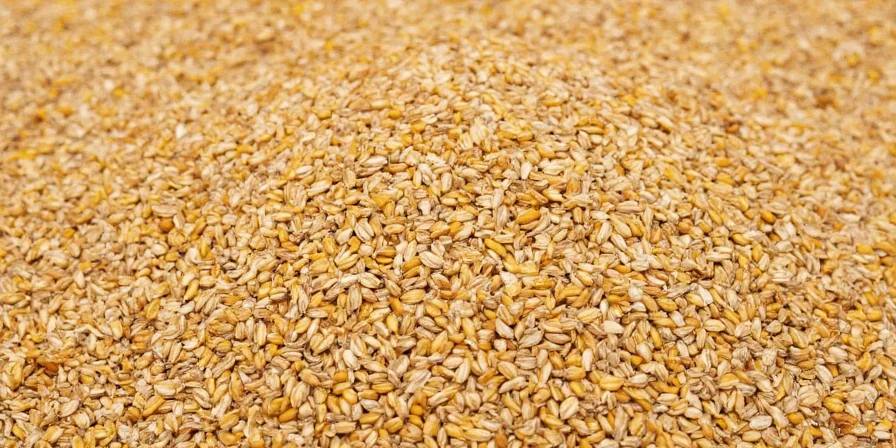The Marvelous Sesame Seed: A Comprehensive Guide
Sesame seeds, known scientifically as Sesamum indicum, have been a staple in various cuisines around the world for centuries. These tiny seeds are not only rich in flavor but also packed with essential nutrients, making them a valuable addition to a healthy diet. In this blog, we will explore the history, nutritional benefits, culinary uses, and different varieties of sesame seeds.
1. History of Sesame Seeds
Sesame seeds have a rich history that dates back over 5,000 years. They are believed to have originated in Africa and India, where they were one of the first oilseed crops ever cultivated. Ancient civilizations valued sesame seeds for their oil, which was used for cooking, lighting lamps, and even in traditional medicines.
- In ancient Babylon, sesame seeds were used in various dishes and as a form of currency.
- The Egyptians regarded sesame oil as a sacred substance, offering it to their gods.
- In India, sesame seeds are associated with prosperity and longevity, often used in religious rituals.
2. Nutritional Benefits of Sesame Seeds
Sesame seeds are nutritional powerhouses, offering a wide range of health benefits. Here’s a breakdown of their impressive nutritional profile:
| Nutrient | Per 100g |
|---|---|
| Calories | 573 |
| Protein | 17g |
| Fat | 50g |
| Carbohydrates | 23g |
| Fiber | 12g |
| Calcium | 975mg |
| Iron | 14.55mg |
2.1 Heart Health
One of the standout features of sesame seeds is their high content of healthy fats, particularly monounsaturated and polyunsaturated fats, which are known to support heart health. The presence of antioxidants, such as sesamolins and sesamin, also helps in reducing cholesterol levels and preventing cardiovascular diseases.
2.2 Bone Health
Sesame seeds are an excellent source of calcium, making them beneficial for bone health. Regular consumption can help prevent osteoporosis and maintain bone density. Additionally, they contain zinc and magnesium, which are crucial for bone formation and maintenance.
2.3 Antioxidant Properties
The antioxidants found in sesame seeds protect the body from oxidative stress and inflammation, which can lead to chronic diseases. These compounds help neutralize free radicals and promote overall health.
3. Culinary Uses of Sesame Seeds
Sesame seeds are incredibly versatile and can be incorporated into various dishes. Here are some popular culinary uses:
- Sprinkling on Salads: Toasted sesame seeds add a delightful crunch and nutty flavor.
- Baking: Sesame seeds are often used in breads and pastries, enhancing both taste and texture.
- Asian Cuisine: They are a key ingredient in many Asian dishes, including stir-fries, sushi, and sauces.
- Sesame Oil: Extracted from the seeds, sesame oil is a popular cooking oil known for its rich flavor and health benefits.
4. Types of Sesame Seeds
Sesame seeds come in various colors and varieties, each with its unique flavor and culinary applications:
| Type | Color | Flavor Profile | Common Uses |
|---|---|---|---|
| White Sesame Seeds | White/Cream | Mild and Nutty | Baking, Salads |
| Black Sesame Seeds | Black | Strong and Earthy | Asian Dishes, Garnishes |
| Brown Sesame Seeds | Brown | Rich and Nutty | Baking, Cooking |
4.1 White Sesame Seeds
White sesame seeds are the most commonly used variety in Western cooking. They have a mild flavor and are often used in salads, breads, and desserts.
4.2 Black Sesame Seeds
Black sesame seeds have a stronger flavor compared to their white counterparts. They are frequently used in Asian cuisines and are known for their striking appearance in dishes.
4.3 Brown Sesame Seeds
Brown sesame seeds are less common but are appreciated for their rich flavor. They are often used in baking and cooking.
5. How to Store Sesame Seeds
Proper storage is essential to maintain the freshness and nutritional value of sesame seeds. Here are some tips:
- Keep sesame seeds in an airtight container to prevent moisture and contamination.
- Store them in a cool, dark place, such as a pantry or refrigerator.
- Avoid exposure to direct sunlight, as it can cause the oils to become rancid.
6. Fun Facts About Sesame Seeds
Here are some interesting facts that you may not know about sesame seeds:
- Sesame seeds are one of the oldest oilseed crops known to humanity.
- They are often referred to as "the seed of immortality" in ancient cultures.
- In some cultures, sesame seeds are considered a symbol of good luck and prosperity.
7. Conclusion
Sesame seeds are more than just a garnish; they are a nutritional powerhouse with diverse culinary applications. Their rich history, health benefits, and versatility make them a valuable addition to any kitchen. Whether you sprinkle them on salads, incorporate them into baked goods, or use sesame oil for cooking, these tiny seeds can enhance both flavor and nutrition in your diet.
So, next time you reach for that jar of sesame seeds, remember the incredible journey these seeds have taken to become a beloved ingredient in kitchens around the world.











 浙公网安备
33010002000092号
浙公网安备
33010002000092号 浙B2-20120091-4
浙B2-20120091-4